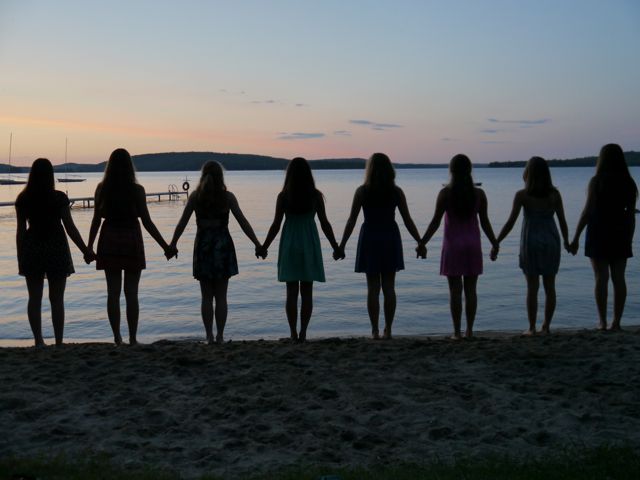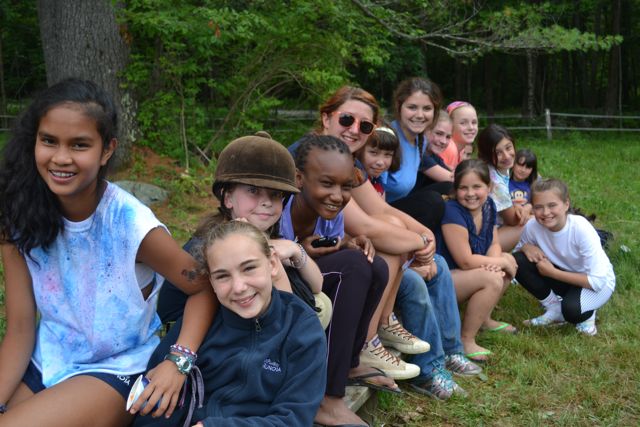
What does camp as socializing agents mean and why does it matter? Coming together at camp, where everyone is treated equally levels the playing field no matter what neighborhood you live in or school you attend. When you spend a few weeks of your year with peers and older and younger children where you live together, play together and work things out together, try new things together or support someone else trying something new – you get to know people very well.
When you spend your days overcoming a challenge together – be it scaling a difficult mountain, crossing the “Peanut Butter Pit” or righting a capsized sailboat, the experience draws you closer. When you spend the summer living in a cabin group where everything from sharing the duties of “shack” clean up to planning for a competition for Evening Program and then having an evening dance party together afterwards makes you a team.

Getting out of socialization cycles means walking in someone else’s shoes or at least glimpsing what that walk for someone else may be like in their world outside of camp. Creating allies at camp with thoughts and feelings like “I’ve got your back” or “I’m a stand-up girl helping another girl” lets children understand through experience that they can affect change and not create enemies because of differences. It teaches them they
can be part of the solution. Sure, our girls have conversations about prejudice; unequal pay for equal work for women, Black Lives Matter and other important social topics and just being at camp makes a difference; being with a group of different people in a culture where everyone is respected and everyone gets a turn makes a difference. Camp is a place where everyone eats the same food, sleeps in the same cabins, uses the same bathrooms. There is no social-economic advantage at camp. You do your morning job and look forward to the fun activities and learning you’ll experience with your friends on any given day.
We’ve talked a lot about camp being a place where people can be their true selves, where the value of camp has increased due to aspects like “unplugging” and building 21st century skills. Now add to that as the United States experiences a new era of civil rights, campers are talking about what’s it like to grow up in a my neighborhood, why strong female characters are an important part of growing up and why role models make a difference in our lives – that’s value added that grows better citizens as well as profound experiences together.
If you’d like to explore ideas about teaching your children about social justice and why it matters, check out this article from Edutopia and American Camp Association’s idea of camps as social justice platforms or perhaps you are a teacher or youth educator? Check out 10 activities to work with youth on social justice:
Making the world a better place, one camper at a time!
Until next week,
Aionur
